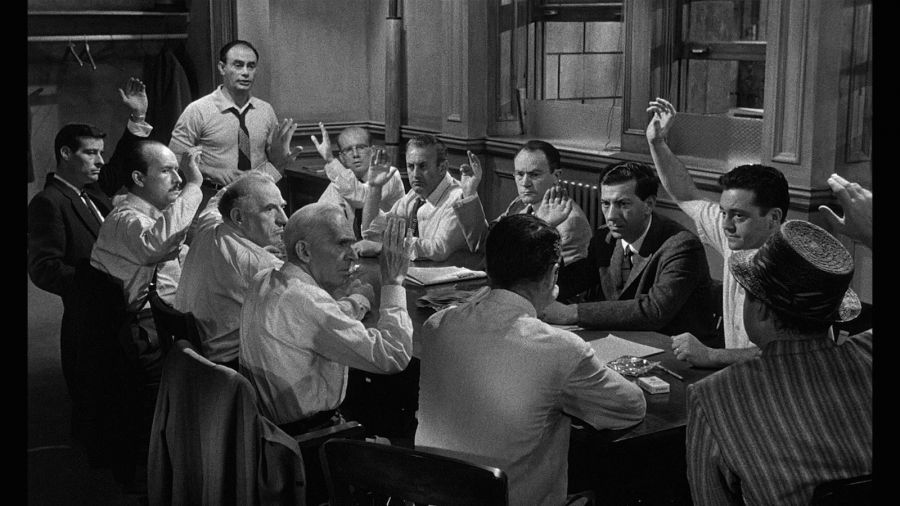Classic Films: Why You Should Watch ’12 Angry Men’
September 25, 2015
What do you think of when you hear “a good movie”? Great special effects or compelling action? A sequel to a favorite franchise? Most young adults today wouldn’t even give a thought to watching older films—and I think that is a great mistake for anyone who enjoys films.
In an age where every film is practically a remake, sequel, or an unoriginal concept, today’s films are sorely lacking in quality. In result, many people would rather binge-watch their favorite show on Netflix than go out to the theaters. However, what those people might not know is that Netflix holds a treasure trove of classic films. One of them is 12 Angry Men, a film that is essential for understanding human nature.
Released in 1957, 12 Angry Men follows the story of a jury responsible for deciding the fate of an 18-year-old accused of murdering his father. All jurors in the room decide the boy is guilty, save for one juror. It is from this moment on that a key facet of human nature is shown through the remarkably natural dialogue between the twelve, examining concepts such as personal bias from different walks of life, peer pressure, and racism.
In the film, juror #8 brings up ideas that would place the 18-year-old’s guilt under reasonable doubt, with the prevailing idea that the death of a person should not be decided in less than five minutes. Despite his guilt having been “clear-cut” to 11 of the jurors, scrutiny is raised not ten minutes after juror #8’s proposal. Slowly, but surely, the jurors reconsider their hasty decision for a more in-depth discussion on the reliability of evidence:
Juror #8: Could they be wrong?
Juror #12: What are you trying to say? Those people sat on the stand under oath.
Juror #8: They’re only people. People make mistakes. Could they be wrong?
Juror #12: Well, no, I don’t think so.
Juror #8: Do you ‘know’ so?
Juror #12: Oh, come on. Nobody can know a thing like that. This isn’t an exact science.
Juror #8: That’s right, it isn’t.
12 Angry Men is a remarkable work of art. All filmed in one room in under three weeks, it goes into extremely fine detail, while still keeping natural dialogue. The filming techniques used create a feeling of claustrophobia, especially as tensions increase between the jurors. However, that’s not why 12 Angry Men is so powerful. It is a film that would challenge ways of thinking, telling those who would pass judgement quickly to slow down and examine the situation. It reminds us that level-headed discussion is the best way to reach a conclusion, and that bias is almost always present in all individuals. The film also urges us to not take all things at face value, and that some things may not be revealed until the very end:
Juror #3: You’re talkin’ about a matter of *seconds!* Nobody can be *that* accurate!
Juror #8: Well, I think testimony that can put a boy into the electric chair *should* be that accurate.
Ultimately, the film presents one question: should bias trump reason? It seems obvious now, but it is much less clear in everyday life. It reminds us that we are responsible for maintaining a discussion with valid reasoning, especially when the stakes are as high as the life of another person. Although we may rarely find ourselves in life-or-death situations, 12 Angry Men is a must-see for everyone because it warns us of the implications of ignorance, especially when it is unrecognized.






Mary Neil • Jan 9, 2020 at 7:54 am
Bao,
Great article explaining this film. It is a must see classic. Thank you for illustrating that.
Mrs. Neil